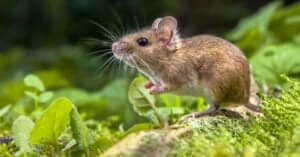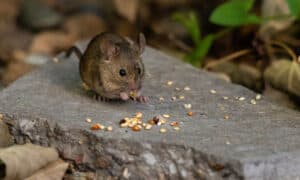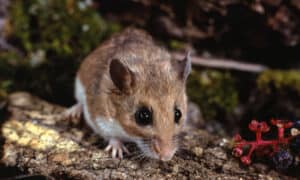Chinchilla babies are undeniably adorable. Native to the Andes Mountains in South America, chinchillas are endangered in the wild. There are two species of chinchillas: Chinchilla lanigera and Chinchilla chinchilla. Chinchillas were hunted extensively in the 1700s and 1800s for their fur, which led to a population decline. Both species are considered endangered, although conservation efforts have kept them from extinction.
Around a century ago, people began breeding chinchillas as pets. Domesticated chinchillas are friendly to humans and can grow to be about twice the size of their wild counterparts.
Chinchilla mothers usually have two to three babies per litter, although they can have up to six. In the wild, they typically have two litters per year. Chinchillas are social animals, with wild chinchillas living in large herds of over 100 individuals.
Keep reading to learn six captivating facts about baby chinchillas!
#1 Newborn Baby Chinchillas Are Called Kits
When chinchilla babies are born, they are called kits. At around eight to 12 weeks old, the babies wean from their mother’s milk. At this point, they become weanlings. They are considered adults around one year of age.
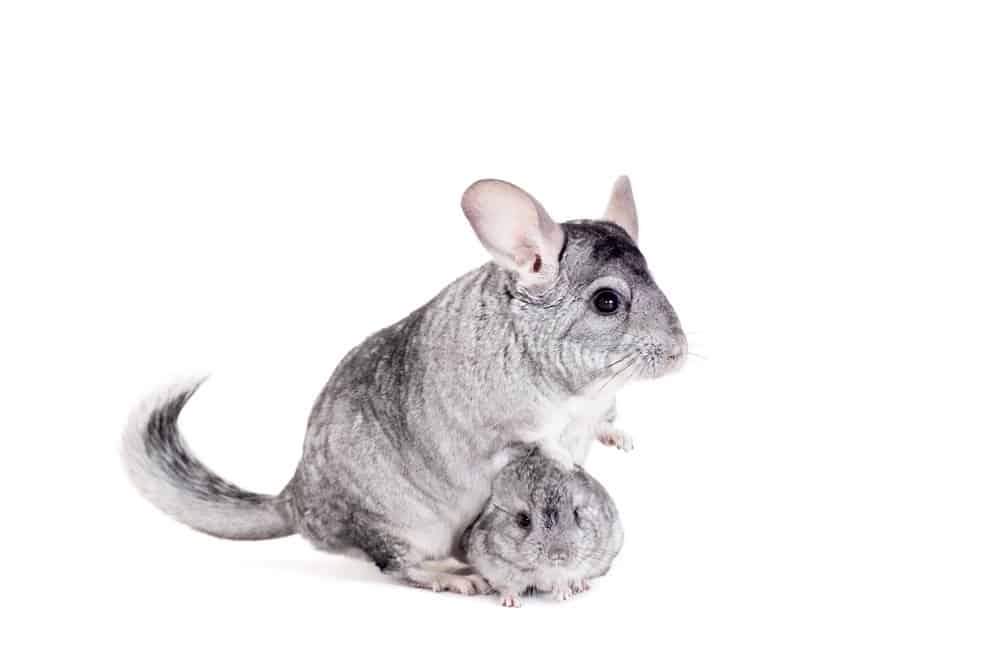
A mother chinchilla can have two or three chinchilla babies in a litter, sometimes even up to six.
©Rosa Jay/Shutterstock.com
#2 Baby Chinchillas Are Tiny
These adorable babies only weigh four to six ounces at birth. As adults, they will be smaller than house cats, growing to be eight to 11 inches long with a five to six and half-inch tail. Adult chinchillas only weigh around one to two pounds.
#3 Newborn Baby Chinchillas Are Agile and Fast
Some baby animals are born relatively helpless. Not the chinchilla kit. The babies are born with open eyes and fully intact hearing. They are a little wobbly on their feet when born. They like to huddle under their mother for comfort and warmth.
However, by the end of the first day, the furry kits are full of energy and can dash around with ease. People who own them as pets should take caution when opening cage doors containing baby chinchillas, as they can quickly scramble away.
#4 Chinchilla Babies Are Born With Soft and Luxurious Fur
Some baby animals come into the world naked, without feathers or fur. But baby chinchillas are born with a thick coat of fur. It helps them to keep warm in their native harsh mountainous regions.
The chinchillas have evolved lush, warm coats to protect them from the brutally cold and windy conditions of their 14,000-foot elevation levels in the mountains. Their soft, silky fur became a highly wanted commodity in the 1700s and 1800s.
Because it takes so many chinchillas to make one human-sized coat, the friendly rodents were nearly hunted to extinction. Despite conservation efforts, illegal hunting remains a threat to chinchillas.
#5 Fathers Assist the Mothers in Caring for Their Babies
Similar to mice, but unlike many other mammals, chinchilla fathers stick around to help out the mothers in caring for their babies. However, the mother is the main caregiver and protects her babies with ferocity.
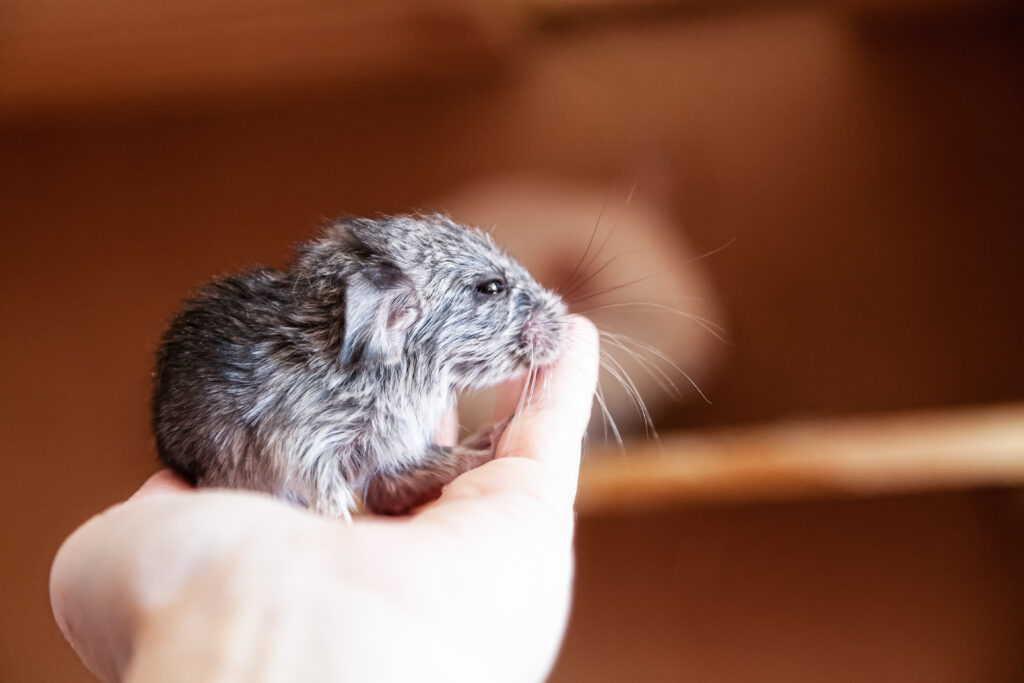
Newborn baby chinchillas only weigh about one to two ounces at birth.
©iStock.com/Icealien
#6 Mother Chinchillas Help Each Other Out
As we mentioned earlier, chinchillas are very social animals. They stick together in large groups of herds. If a mother chinchilla is sick or unable to nurse her young, other mothers will step in to help the struggling mother. Chinchilla females have also been observed taking in and nursing ophan babies.
The photo featured at the top of this post is © iStock.com/Icealien
Thank you for reading! Have some feedback for us? Contact the AZ Animals editorial team.



